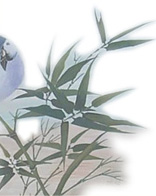|
 Listen to Shirley Singing the Poem in Chinese & in English Sep 15,2016 Listen to Shirley Singing the Poem in Chinese & in English Sep 15,2016
 Listen to Shirley Singing the Poem in English & Chinese Sep 15,2016 Listen to Shirley Singing the Poem in English & Chinese Sep 15,2016
  Listen to Shirley Explaining the Poem & Follow Me to Read It Listen to Shirley Explaining the Poem & Follow Me to Read It
  Follow Shirley to Read the New Words & the Poem Follow Shirley to Read the New Words & the Poem
 Learn the Meaning of the Poem Learn the Meaning of the Poem
 See Shirley Created Paintings for the Poem Sep 10,2016 See Shirley Created Paintings for the Poem Sep 10,2016
 See Shirley Created Paintings for the Poem Dec 29,2014 - Jan 3, 2015 See Shirley Created Paintings for the Poem Dec 29,2014 - Jan 3, 2015
Today -- Sep 15, 2016 is the Mid-autumn Festival of China. I would like to introduce a famous poem which relates to the moon by Li Bai who was one of the greatest poets in Chinese history.
 The Main Meaning of the Poem and the Lyrics of the Song in English The Main Meaning of the Poem and the Lyrics of the Song in English
Missing my Hometown in the Peaceful Night
By Li Bai (701-762)
Tang Dynasty (618-907)
Bright moonlight is by my bed.
Is it the frost on the ground?
Raising my head I see the silvery moon,
Lowing my head I miss my hometown.
Original Poem, Lyrics of the Song in Chinese and Pronunciations
You can click on any Chinese Character to open the New Character Board and see its Chinese pinyin, meaning, pronunciation and follow me to read it; you can also click on the links to enter the Vocal, Bilingual Poetry & Painting Series of Painting Column, or to enter the Classical Column of Chinese Language column.
щЭЩхдЬцАЭ -- J├мng Y├и S─л
цЭОчЩ╜ - L╟Р B├бi (701-762)
хФР- t├бng я╝И618-907я╝Й
х║КхЙНцШОцЬИхЕЙ - Chu├бng qi├бn m├нng yu├иgu─Бng,
чЦСцШпхЬ░ф╕КщЬЬ - y├нsh├мd├мsh├аng shu─БngуАВ
ф╕╛хд┤цЬЫцШОцЬИ - J╟Ф├│u w├аng m├нngyu├и,
ф╜Охд┤цАЭцХЕф╣б - d─лt├│u s─лg├╣xi─Бng.уАВ
About the Poet
Li Bai (701-762) is one of the most renowned and admired poets in China , He was born in Chengji (near today's Gansu province and it is also said that he was born in todayтАЩs Tianshui in Gansu ). When he was 5 years old, he was taken to Sichuan by his father.
Li Bai was influenced by both Confucianism and Taoism. He started to travel in the country when he was 25 years old. Then he entered the imperial court and became a member of the Han-lin Academy at the age of 42. He was greatly delighted and eager to serve the emperor as a capable statesman. But the Emperor Xuanzong only had him as a wonderful palace poet to write trivial lyrics. He was unwilling to serve such a meaningless function, so he left the capital in less than two years, to start his second travel, aimlessly wandering all over the country. Then he was charged as an adherent of the rebel cause and sentenced to exile, though he was pardoned on the way. He died of some illness at Dangtu in today's Anhui .
Li Bai lived during the most flourishing times in the Tang Dynasty (618 - 907). Most of his poems reflect the positive spirit of the times. He is considered as the foremost romantic poet of the Tang Dynasty and his writing style has influenced poets down to the present day.
About 1,100 poems by Li Bai have come down from his times. They are very popular and are recited by Chinese from their childhoods.
 Enjoy the Poem Enjoy the Poem
It is said that Li Bai wrote this poem at a hotel in Yang Zhou (in todayтАЩs Jiangsu Province) on the fifteenth day of the ninth lunar month, when he was 26 years old in 726. The moonlight covering his bed set off his homesickness so that he could not help getting up and writing this well-known little poem.
Let us first enjoy it line by line:
The first line: х║КхЙНцШОцЬИхЕЙ - Chu├бng qi├бn m├нng yu├иgu─БngуАВх║К chu├бng means bed, about this word, there are three other versions meanings: n. well, window, camp chair. хЙНqi├бn means front, in front of; цШО m├нng means bright; цЬИ yu├и means moon; хЕЙgu─Бng means light; цШОцЬИmeans bright moon. This line means bright moonlight is by my bed.
The second line: чЦСцШпхЬ░ф╕КщЬЬ тАУ y├н sh├м d├мsh├аng shu─БngуАВчЦС y├н means doubt, suspect; цШпmeans be is are; хЬ░ d├м means ground, ф╕Кsh├аng means above, over, on the surface ; щЬЬ shu─Бng means frost. This line means I doubt it is the frost on the ground.
The third line: ф╕╛хд┤цЬЫцШОцЬИ - J╟Фt├│u w├аng m├нngyu├иуАВф╕╛хд┤J╟Ф├│u means raise oneтАЩ head. Hereф╕╛J╟Ф means raise; хд┤t├│u means head. цЬЫw├аng means look over, look up; цШОцЬИm├нngyu├и means bright moon. цШОm├нng means bright; цЬИ yu├и means moon. This line means when I raise my head, I see the bright moon.
The last line: ф╜Охд┤цАЭцХЕф╣б - d─лt├│u s─лg├╣xi─Бng. ф╜Охд┤d─лt├│u means lower oneтАЩs head; ф╜Оd─л means low, lower; хд┤t├│u means head; цАЭ s─л means think, miss; цХЕф╣бg├╣xi─Бng means hometown, country. This line means when I lower my head, I miss my hometown.
The biggest character of this poem is the extreme simplicity of its language, it is easy and natural; like spoken language, it тАЬ paints тАЭ out a series pictures and includes some psychological activities and some physical activities of the poet, a little natural scenery and a lot of meaning; it gives readers a big imaginative space; it shows the masterly skill of language usage and artistic conception creation of Li Bai. Therefore, this little poem, with only 20 Chinese characters has been beloved of Chinese people for about 1,300 years and is included in almost all collections of Chinese classical poetry and into the textbooks of Chinese elementary schools. Many Chinese people can recite it when they are 2 or 3 years old and still enjoy it when they are 70 or 80.
Now we can go back to the first two linesх║КхЙНцШОцЬИхЕЙ Chu├бng qi├бn m├нng yu├иgu─Бng, чЦСцШпхЬ░ф╕КщЬЬ y├н sh├м d├мsh├аng shu─Бng тАУ Looking at the bright moonlight by my bed, I doubt it is the frost on the ground. The first two lines show us time, place and the psychological activity of the poet. When he wakes up at midnight and sees some rays by his bed, the first reflection in his mind is that it may be frost, since it is late fall. Then he could not be sure about it for his eyes were heavy with sleep. Since there is some doubt, he cannot helping getting up and going to the window or simply going out of the door to check what the light front of his bed is. However, when he raises his head, looking up the bright moon, a long-term homesickness comes into his heart, so that he lowers his head with an overwhelming feeling of missing his hometown. So, there are the last two lines ф╕╛хд┤цЬЫцШОцЬИ J╟Фt├│u w├аng m├нngyu├и, ф╜Охд┤цАЭцХЕф╣б d─лt├│u s─лg├╣xi─Бng.-- Raising my head I see the mountains and the moon, lowing my head I miss my hometown, to write about the physical activities and more psychological activities.
 From чЦСy├н тАЬ doubt тАЭ, then to цЬЫ w├аng тАЬ look up тАЭ and then to цАЭs─л тАЬ miss, long for or think of тАЭ, fromф╕╛хд┤J╟Фt├│u тАЬ raise my head тАЭ toф╜Охд┤d─лt├│u тАЬ lower my head тАЭ, we see a series psychological activities and physical actions. Plus the wordsх║КChu├бng тАЬ bed тАЭ, цЬИхЕЙ yu├иgu─Бng тАЬmoonlight тАЭ, щЬЬ shu─Бng тАЬ frost тАЭ, цШОцЬИ m├нngyu├и тАЬ bright moon тАЭ, and цХЕф╣б g├╣xi─Бng тАЬ hometown тАЭ show us a succession of views and scenes relating to architecture, seasons, sky, travel, family members, countries and so onтАж with all of these together, this little poem not only creates a quite clear artistic conception, but also it leaves a huge scope for our imagination. All of this is expressed in just 20 Chinese characters with very simple words, we can see how good Li Bai is at language usage and at writing poetry. This is why his work, together with that of Du Fu, represent the highest peak of Chinese poetry. From чЦСy├н тАЬ doubt тАЭ, then to цЬЫ w├аng тАЬ look up тАЭ and then to цАЭs─л тАЬ miss, long for or think of тАЭ, fromф╕╛хд┤J╟Фt├│u тАЬ raise my head тАЭ toф╜Охд┤d─лt├│u тАЬ lower my head тАЭ, we see a series psychological activities and physical actions. Plus the wordsх║КChu├бng тАЬ bed тАЭ, цЬИхЕЙ yu├иgu─Бng тАЬmoonlight тАЭ, щЬЬ shu─Бng тАЬ frost тАЭ, цШОцЬИ m├нngyu├и тАЬ bright moon тАЭ, and цХЕф╣б g├╣xi─Бng тАЬ hometown тАЭ show us a succession of views and scenes relating to architecture, seasons, sky, travel, family members, countries and so onтАж with all of these together, this little poem not only creates a quite clear artistic conception, but also it leaves a huge scope for our imagination. All of this is expressed in just 20 Chinese characters with very simple words, we can see how good Li Bai is at language usage and at writing poetry. This is why his work, together with that of Du Fu, represent the highest peak of Chinese poetry.
There are two versions of this poem, one is the current version we have learned, which is from the record of the Ming Dynasty (1368 тАУ 1644 ); the other version is from the record of the Song Dynasty (960 - 1279) ,which has something different:
х║КхЙНчЬЛцЬИхЕЙ - Chu├бng qi├бn k├аn yu├иgu─Бng,
чЦСцШпхЬ░ф╕КщЬЬ - y├нsh├мd├мsh├аng shu─БngуАВ
ф╕╛хд┤цЬЫх▒▒цЬИ - J╟Ф├│u w├аng sh─Бnyu├и,
ф╜Охд┤цАЭцХЕф╣б - d─лt├│u s─лg├╣xi─Бng.уАВ
It means:
Look the bright moonlight is by my bed.
Is it the frost on the ground?
Raising my head I see the mountains and the moon,
Lowering my head I miss my hometown.
The second version is nearer to the times when Li Bai lived, but the first version is more popular and is included in many different textbooks. I have written the latter for your information.
Inspiration:
Sometimes, the more simple and the more natural the better. The more natural language requires a higher ability to master the language. If we want to reach the level of simplicity and nature, we must have gone over the process from simple to complex then back to simple.
It is same as a person. When we start off in the world, we are pure and simple and then when we pass away, we are also simple and pure.
In the first phase we come to the world, we don't have much knowledge, skill or property to live and we have little life experience , we are simple and natural. In the last phase of life, we have already seen, thought and done many things in the world, so that we understand and see many things clearly and have not many desires, so that when we reach a certain age, we change to being simple and pure.
The most difficult is during our middle phase. We are too complex for we have too many desires and burdens so that we want to keep something we have had or get something more from this world or from others.
So, if someone wants to be more simple and natural, perhaps the best way is to not have as many desires and also be more giving. When we often give something to others, instead of wanting to get from the others, we will become simple, natural and also happier. Do you think so?
This is the first Chinese poem that I introduced to my readers in 2005. At that time, I went to about 20 music stores but I did not find any ready and suitable music to match it. Also, I had no database to save any vocabulary in the poem. I had no choice but have to think of composing music to match Chinese classical poem by myself and founded my own database. Then I did. Until now. I have created more than 170 pieces of music and painted more than 100 pictures to match Classical Chinese poems and the music.
However, until August, 2014, I had only composed a piece of music to match this poem and it was not until the New YearтАЩs Day holiday of Chinese National Academy of Arts 2015, that I created a picture to match this poem and the music first time . Now I have re-written the article, re-created the music and painting already. My Chinese English  tutors Mrs. Xiaogang Zhang, English English tutor Mr. Mike Joyce and Professor Weiye Meng who is my music coach have checked and corrected my articles and music. tutors Mrs. Xiaogang Zhang, English English tutor Mr. Mike Joyce and Professor Weiye Meng who is my music coach have checked and corrected my articles and music.
I do hope our effort will be some help to you to learn more Chinese culture, music and language.
If you have any questions, comments and suggestions, please write to shirley@ebridge.cn ; you are welcome to publish your opinions on the Message Board as well.
Shirley Yiping Zhang
Wrote, Painted, Translated, Sang & Recorded the Content on Sep 15, 2016/Sep 3, 2005
|

